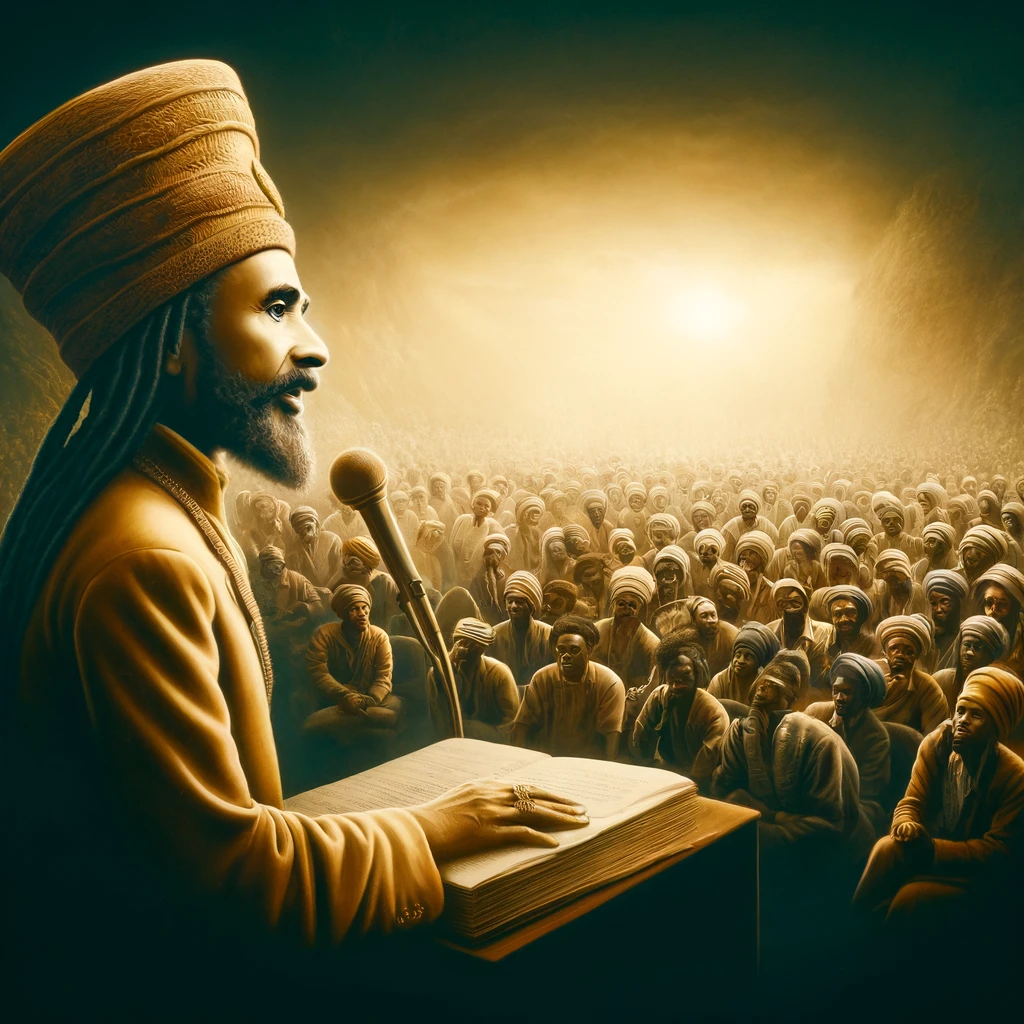Haile Selassie I, the revered Emperor of Ethiopia, is not only a pivotal figure in Rastafari culture but also a powerful orator whose speeches have profoundly influenced the movement. His words, delivered with wisdom and conviction, continue to inspire and guide Rastafarians worldwide.
1. The Spiritual and Political Leader
Haile Selassie I, also known as Ras Tafari, ascended to the throne as Emperor of Ethiopia in 1930. His reign was marked by efforts to modernize Ethiopia and promote peace and unity. For Rastafarians, Haile Selassie is seen as the returned Messiah, and his speeches are considered sacred texts that offer spiritual and moral guidance.
2. Key Themes in His Speeches
Haile Selassie’s speeches cover a range of themes that resonate deeply with Rastafari beliefs:
- Unity and Peace: Selassie often emphasized the importance of unity and peace among nations and individuals. His call for collective security and cooperation is reflected in Rastafari’s emphasis on community and harmony.
- Resistance and Liberation: Selassie’s speeches during the Italian invasion of Ethiopia in 1935 are particularly significant. His passionate appeal to the League of Nations for support against fascist aggression embodies the Rastafari spirit of resistance against oppression and injustice.
- Spirituality and Faith: Selassie’s references to God and his own deep faith resonate with Rastafarians, who view him as a divine figure. His speeches often include biblical references, reinforcing his spiritual authority.
3. Influential Speeches
Several speeches by Haile Selassie I have become cornerstones of Rastafari teachings:
- The 1963 Speech to the United Nations: In this address, Selassie called for world peace and an end to nuclear proliferation. His words, later immortalized in Bob Marley’s song “War,” emphasize equality, human rights, and the fight against racial discrimination.
- The 1936 Appeal to the League of Nations: Selassie’s plea for international support against Italian aggression is a powerful testament to his leadership and courage. This speech underscores the importance of standing against tyranny and injustice, core principles of Rastafari.
4. Cultural and Spiritual Impact
Haile Selassie’s speeches are studied, recited, and revered within the Rastafari community. They serve as a source of inspiration and guidance, shaping the movement’s values and actions. His words are integrated into Rastafari worship, reasoning sessions, and educational materials, reinforcing the teachings of unity, resistance, and spiritual devotion.
5. Personal Reflection
For many Rastafarians, Haile Selassie’s speeches are a lifeline, providing wisdom and strength in challenging times. Reflecting on his words helps individuals to navigate their spiritual journey and stay committed to the principles of Rastafari. The speeches are a reminder of the divine mission and the ongoing struggle for justice and peace.
Closing Thoughts
The speeches of Haile Selassie I are a vital part of Rastafari culture, offering profound insights into spirituality, resistance, and unity. They continue to inspire and guide Rastafarians, reinforcing the movement’s commitment to living a righteous and harmonious life.

